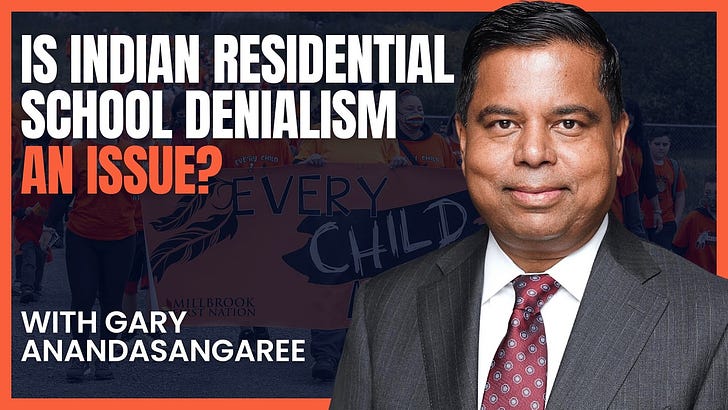Should We Criminalize Indian Residential School Denialism?
🎧 Podcast Episode 172 with Minister Gary Anandasangaree
Keep reading with a 7-day free trial
Subscribe to Nuanced. to keep reading this post and get 7 days of free access to the full post archives.



